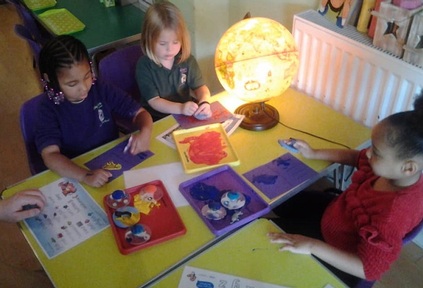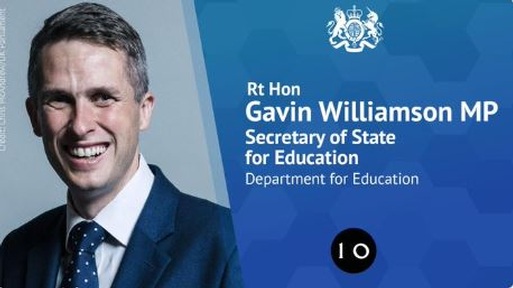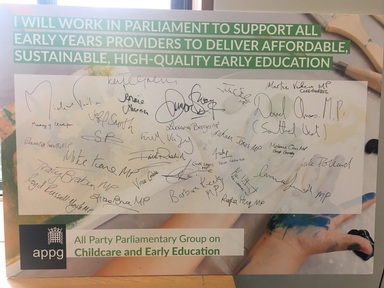Eighty per cent of teachers say investing in nurseries is key to improving children’s language skills
Eight out of ten teachers believe investing more in nurseries is key to improving children’s speech and language skills in primary school, according to a new survey.

The poll carried out by Save the Children – part of the Read On. Get On. literacy coalition of leading charities, teachers, parents and businesses, found three-quarters of primary school teachers see children when they start in Reception struggling to speak in full sentences and 65 per cent of teachers say children are unable to follow simple instructions.
The teachers surveyed said that many children never catch up and that this early language gap is dragging down school results and making it harder for them to deliver the curriculum for all children.
Gareth Jenkins, director of UK Poverty at Save the Children said: “This poll shows the shocking impact of so many children arriving at school without basic speech and language skills. The Government has pledged to drive up school standards but it is time that we recognised that nursery standards are just as important in children’s development.
“Without investment to improve nursery quality we’ll continue to see schools struggling to support the one in four children who arrive at their gates without the basic language and communication skills needed to read, learn and succeed in the classroom.”
More than three quarters of teachers (78 per cent) voiced concerns that despite their best classroom efforts these children may never catch up.
Being behind in speech and language at age five will still affect children when they enter secondary school , according to a quarter of teachers. One in seven teachers even expect the impact of poor language skills during a child’s early years to be life-long.
Government figures show that one in five children starting school in England have failed to develop good early language skills and the polling has revealed that teachers are struggling to cope with the impact in their classrooms.
Eighty per cent of teachers were spending extra time helping children learn basic communication skills and almost two thirds (63 per cent) say they now lack the time to teach other children in the class who don’t struggle with speech and language.
More than half said the problem was affecting the schools’ results and the same number said that poor language development is causing problems for classroom management, as children struggling to understand or express themselves can’t follow lessons or start to misbehave.
Teachers also sent a strong message about the role nurseries play in ensuring children arrive at school ready to learn.
Evidence from Save the Children and the Read On. Get On. coalition has shown that high quality nurseries led by early years teachers have the biggest positive impact on children’s early language development.
This was backed up by teachers, 8 out of 10 of whom felt that investing more in the quality of nurseries was the key to improving primary school results.
Only 15 per cent said they felt the Government was currently investing enough in pre-school education and nurseries.
In response to the findings, Purnima Tanuku, NDNA’s chief executive, said: “Teachers themselves are convinced of the massive, positive impact that every pound invested in early learning has on children’s formal schooling and this is where the smart money must go.
“Investment in high quality early years education reaps great rewards for children and society generally, with the biggest return on investment from starting early, particularly for the most disadvantaged pupils.”
She added: “It’s not good enough to wait until children are at school and already falling behind their peers. Early literacy and communication skills are fundamental to later success in life. And yet the Early Years Pupils Premium is just £300 per pupil, which is pocket money compared to the primary school equivalent of £1,320.
“The Government needs to consider this carefully and take the next step to invest in our children’s crucial years of development, building on what is already in place.”
Read On. Get On. continues to galvanise the nation to ensure that by 2025, every child is a confident reader by age 11. For more information on Read On. Get On. please visit www.readongeton.co.uk
See more at: http://www.savethechildren.org.uk/2015-11/teachers-poll-children-start-school-struggling-speak-full-sentences#sthash.3LOQwkEH.dpuf
Latest News Analysis
 06-Aug-19
Nursery boss says 'cultural capital has always been important, it shouldn't be new'
06-Aug-19
Nursery boss says 'cultural capital has always been important, it shouldn't be new'
 25-Jul-19
Gavin Williamson appointed education minister
25-Jul-19
Gavin Williamson appointed education minister
 17-Jul-19
Flexible Working Bill for all jobs gets MPs approval - delighting parents, disabled and carers
17-Jul-19
Flexible Working Bill for all jobs gets MPs approval - delighting parents, disabled and carers
 03-Jul-19
MPs blame government policies for nursery closures in deprived areas
03-Jul-19
MPs blame government policies for nursery closures in deprived areas
 14-May-19
Number of schools wanting to pilot Reception Baseline Assessments 'embarrassingly low'
14-May-19
Number of schools wanting to pilot Reception Baseline Assessments 'embarrassingly low'